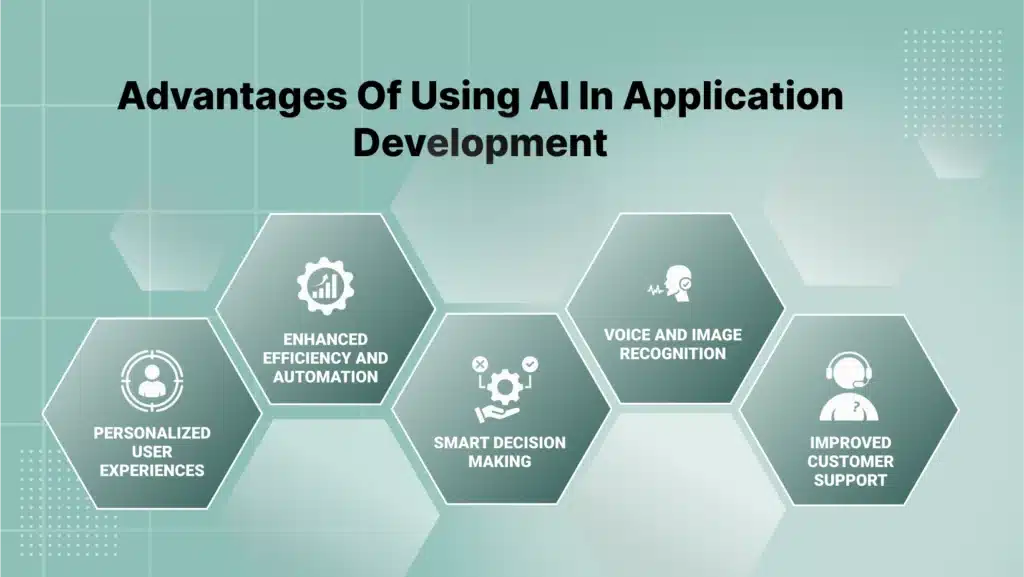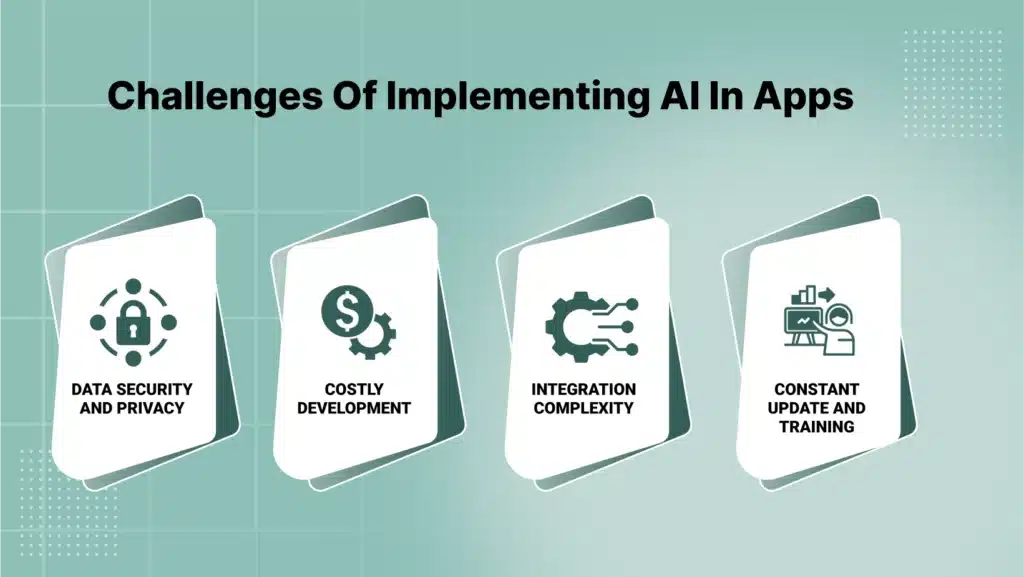The era of the internet, AI in mobile apps is no longer a dream of the future it’s a reality of the present that is revolutionizing the face of mobile apps. From intelligent chatbots to content display based on personalization and predictive analytics, AI-powered mobile app development is creating new avenues of innovation and functionality. For companies like AppVin, it’s a key tool for building more intuitive, responsive, and user-friendly digital experiences.
We cover the benefits, issues, and how AI is used in mobile apps, along with real-life uses.
What is AI in Mobile App Development?
AI is computer programming that possesses the capability to replicate human intelligence in the performance of tasks that otherwise constitute human intelligence. Such tasks include speech recognition, decision-making, language translation, and pattern detection. For apps on smartphones, AI has at your fingertips machine learning (ML), natural language processing (NLP), and computer vision capabilities.
Mistaking AI and mobile apps enables apps to customize themselves to people, evolve, automate repetitive tasks, and live like humans. Voice commands like Siri or suggestion algorithms like Netflix, AI-powered mobile apps are revamping human interactions with technology.
Advantages of Using AI in Application Development
1. Personalized User Experiences
Machine learning in mobile apps allows developers to create customized interfaces and suggestions. AI processes control user data-like browsing, usage, and preferences recommend appropriate content and suggestions. This leads to greater user satisfaction and interaction.
2. Enhanced Efficiency and Automation
AI based mobile app development tools automate workflows by removing unwanted or routine tasks. For example, AI can auto-restock inventory in e-commerce apps or flag suspicious transactions in finance apps.
3. Smart Decision Making
With real-time processing of large volumes of data, AI allows apps to make smarter decisions. Think navigation apps using AI to recommend routes based on traffic, or fitness apps providing insights based on wearable data.

4. Voice and Image Recognition
AI enables advanced features like voice recognition, facial recognition, and object detection. Google Lens and iPhone Face ID are examples of these features being used to provide seamless user experiences.
5. Improved Customer Support
Chatbots and virtual assistants, powered by NLP and AI, provide 24/7 customer support, handling queries quickly while reducing operating costs.
Challenges of Implementing AI in Apps
Though the benefits of AI in app development are obvious, development using such technologies also has some unique problems.
1. Data Security and Privacy
AI applications rely on user data to function effectively. Data protection and regulatory compliance according to GDPR or HIPAA are required to maintain user privacy.
2. Costly Development
One of the biggest challenges in developing AI-based apps is expense. It requires investing money in the form of wages for professional AI developers, buying data sets, and applying advanced algorithms. The expense of developing AI-based apps depends hugely on app complexity and desired features.
3. Integration Complexity
Introducing AI into pre-existing app frameworks may be technically challenging. There are issues like API compatibility, real-time processing, and whether cloud or edge processing is required.
4. Constant Update and Training
AI systems update and train constantly with new data. An AI feature is never actually “complete”-it is constantly evolving with time and user interaction.

AI Use Cases in Mobile App Development
Healthcare
Mobile health apps with AI have diagnostic support, reminders for taking medicines, and online health consultation. Babylon Health, for example, provides AI-powered medical consultations based on the symptoms of patients.
E-Commerce
AI enhances product suggestion, customer care through chatbots, and visual search in the case of e-commerce. Amazon and eBay use AI to enhance the rate of sales and make shopping easier.
AI enables fraud detection, automated payments, and financial projections. AI is applied in financial apps like Mint and Cleo to track spending and budgeting.
Education
Machine learning is applied in Duolingo-style apps to adjust language classes based on students’ study habits and performance.
Travel
AI applied in travel apps powers smart booking sites, flight recommendations, and live travel alerts. Hopper, for instance, employs AI algorithms to predict airfares.
Conclusion
As mobile users look for more intelligent, efficient, and personalized experiences, adding AI to mobile apps is the future mandate of visionary companies. The benefits of AI in app development are mind-boggling- SMART interaction, automation of functions, and so on- but app developers must counter the challenges of AI integration in apps with visionary thinking and solid infrastructure as well.






